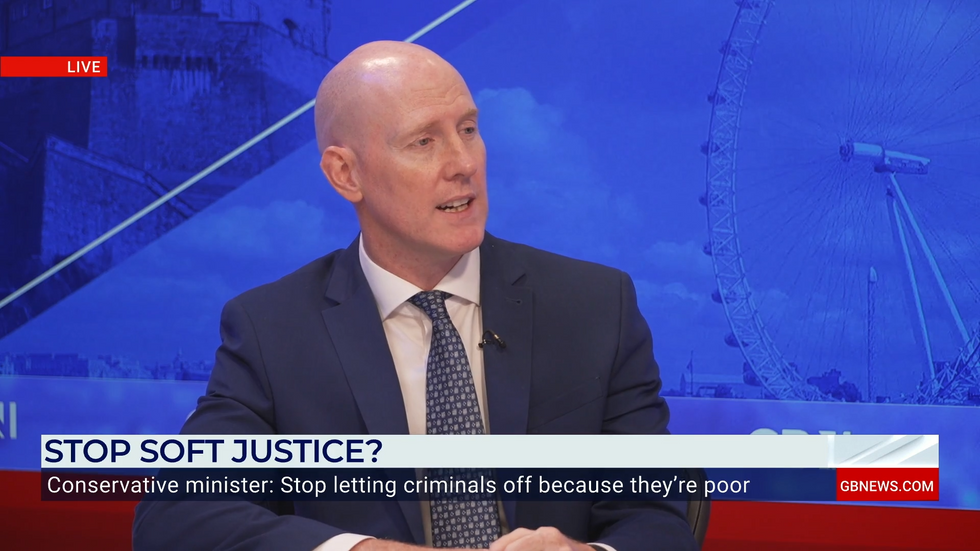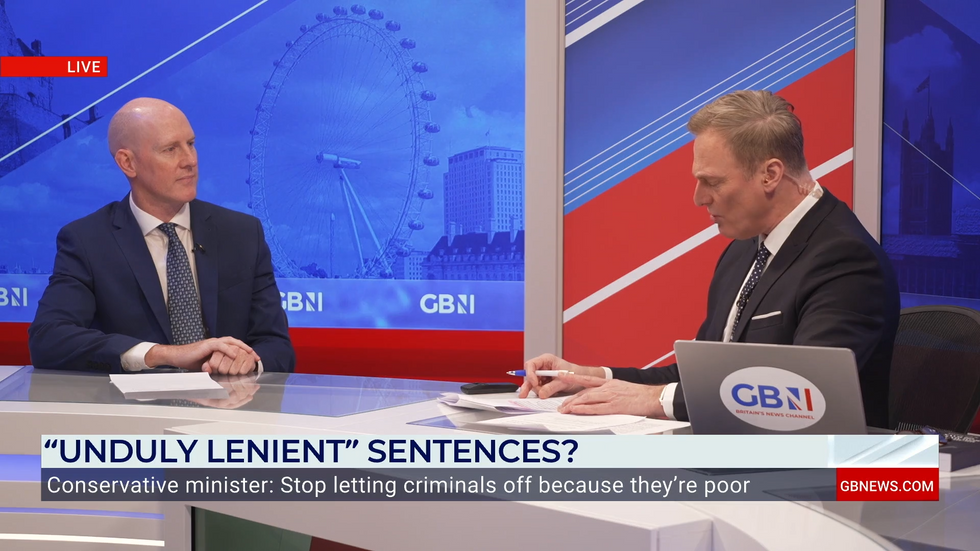Shadow Justice Minister Dr Kieran Mullan about ‘soft justice’
GB News
This follows a controversial case where a drug-dealing couple received suspended sentences after citing poverty as a mitigating factor for their crimes
Don't Miss
Most Read
Trending on GB News
The shadow justice minister has called for an urgent overhaul of sentencing guidelines that allow judges to give more lenient sentences to offenders from "deprived" backgrounds.
Dr Kieran Mullan's intervention follows a controversial case where a drug-dealing couple received suspended sentences after citing poverty as a mitigating factor for their crimes.
Speaking to GB News, he said: "These are serious offenses, class A are the worst drugs that you could be dealing, cocaine and ecstasy.
"The serious health impacts those kinds of drugs can have. Their defence barrister almost certainly paid for by the taxpayer, pointed out, one of the unemployed and one of them is on a low wage.

The shadow justice minister said that this is "soft justice"
GB News
To me, what we have to always remember is there are very many people who are struggling with their incomes who may be unemployed.
"The vast, vast majority of them don't make the choice to turn to crime as a way of managing that.
LATEST DEVELOPMENTS
"I just think we have to be absolutely clear that we can't make excuses for people the whole time when it comes to choices they make, because that's actually insulting to everybody else who make different choices to make better choices."
Mullan added: "I don't think we could get the balance right on these issues, and we haven't for a long time.
"Maybe people's hearts are in the right places. When we started to put these sorts of measures in, but they clearly are out of kilter with what ordinary people expect from our justice system. Because let's remember, it's there on our behalf.
"The justice system is there so that when we're the victims of crime, we feel justice is done. And in too many ways we see it isn't getting done."

Judges must consider 12 factors of "disadvantage" when criminals are on trial
GETTY
Judges must consider 12 factors of "disadvantage", including poverty, low educational attainment, experience of discrimination and insecure housing.
Other mitigating factors include negative experiences of authority, early exposure to offending by family members, negative peer influences and difficulties relating to drug or alcohol misuse.
The guidance applies to all judges and magistrates when determining offenders' responsibility for crimes and the impact of potential sentences.
The new guidelines faced opposition when introduced, with then Justice Secretary Alex Chalk describing them as "patronising" and "inaccurate".

The Tory MP has written a letter demanding action
GB News
Chalk warned the guidance risked making poor education and poverty excuses for offenders to commit crimes.
Conservative MP Philip Davies also criticised the measures in a consultation document, stating: "I do not agree that having a difficult or deprived background makes you less culpable for committing an offence."
He particularly objected to factors such as "experience of discrimination" or "negative experiences of authority" being considered in sentencing.
"I object very strongly to this whole section as a mitigating factor for any offence," Davies wrote.








